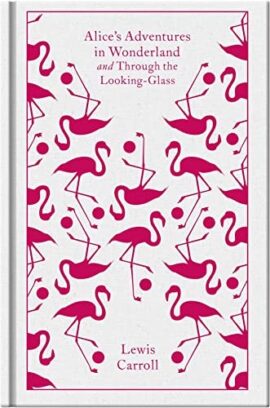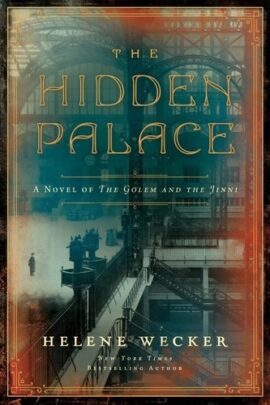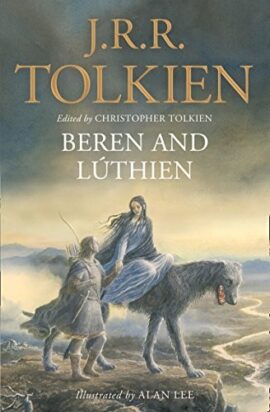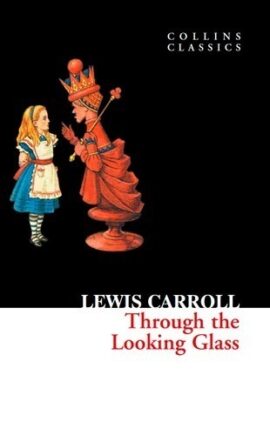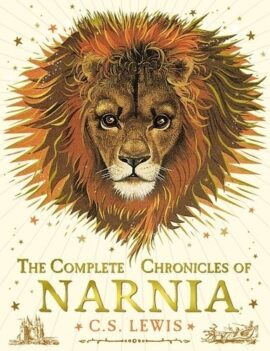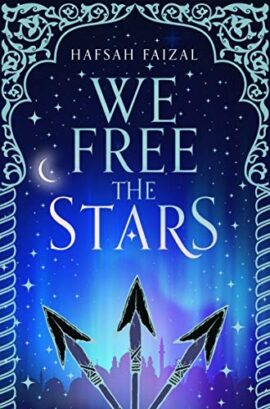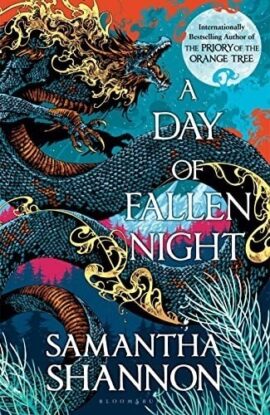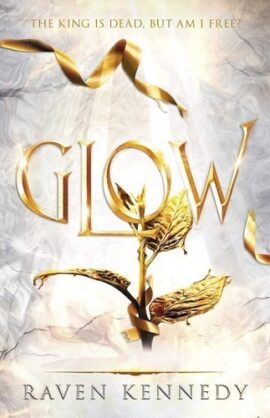Affichage de 361–372 sur 7284 résultatsTrié par popularité
Alice’s Adventures in Wonderland and Through the Looking Glass
Nominated as one of America’s best-loved novels by PBS’s The Great American Read
Part of Penguin's beautiful hardback Clothbound Classics series, designed by the award-winning Coralie Bickford-Smith, these delectable and collectible editions are bound in high-quality colourful, tactile cloth with foil stamped into the design. 'I had sent my heroine straight down a rabbit-hole without the least idea what was to happen afterwards,' wrote Dodgson, describing how Alice was conjured up one 'golden afternoon' in 1862 to entertain his child-friend Alice Liddell. In the magical world of Wonderland and the back-to-front Looking-Glass kingdom, order is turned upside-down: a baby turns into a pig; time is abandoned at a tea-party; and a chaotic game of chess makes a 7-year-old a Queen.
Part of Penguin's beautiful hardback Clothbound Classics series, designed by the award-winning Coralie Bickford-Smith, these delectable and collectible editions are bound in high-quality colourful, tactile cloth with foil stamped into the design. 'I had sent my heroine straight down a rabbit-hole without the least idea what was to happen afterwards,' wrote Dodgson, describing how Alice was conjured up one 'golden afternoon' in 1862 to entertain his child-friend Alice Liddell. In the magical world of Wonderland and the back-to-front Looking-Glass kingdom, order is turned upside-down: a baby turns into a pig; time is abandoned at a tea-party; and a chaotic game of chess makes a 7-year-old a Queen.
The Hidden Palace
"Richly nuanced and beautiful. . . . An immersive and magical tale of loneliness, love, and finding hope.” (Buzzfeed)
“A layered novel of many complex characters…To keep their worlds safe, Chava and Ahmad must access both their greatest supernatural powers and their deepest human impulses.” (Historical Novels Review)
In this enthralling historical epic, set in New York City and the Middle East in the years leading to World War I— the long-awaited follow-up to the acclaimed New York Times bestseller The Golem and the Jinni—Helene Wecker revisits her beloved characters Chava and Ahmad as they confront unexpected new challenges in a rapidly changing human world.
Chava is a golem, a woman made of clay, who can hear the thoughts and longings of those around her and feels compelled by her nature to help them. Ahmad is a jinni, a restless creature of fire, once free to roam the desert but now imprisoned in the shape of a man. Fearing they’ll be exposed as monsters, these magical beings hide their true selves and try to pass as human—just two more immigrants in the bustling world of 1900s Manhattan. Brought together under calamitous circumstances, their lives are now entwined—but they’re not yet certain of what they mean to each other.
Both Chava and Ahmad have changed the lives of the people around them. Park Avenue heiress Sophia Winston, whose brief encounter with Ahmad left her with a strange illness that makes her shiver with cold, travels to the Middle East to seek a cure. There she meets Dima, a tempestuous female jinni who’s been banished from her tribe. Back in New York, in a tenement on the Lower East Side, a little girl named Kreindel helps her rabbi father build a golem they name Yossele—not knowing that she’s about to be sent to an orphanage uptown, where the hulking Yossele will become her only friend and protector.
Spanning the tumultuous years from the turn of the twentieth century to the beginning of World War I, The Hidden Palace follows these lives and others as they collide and interleave. Can Chava and Ahmad find their places in the human world while remaining true to each other? Or will their opposing natures and desires eventually tear them apart—especially once they encounter, thrillingly, other beings like themselves?
“A layered novel of many complex characters…To keep their worlds safe, Chava and Ahmad must access both their greatest supernatural powers and their deepest human impulses.” (Historical Novels Review)
In this enthralling historical epic, set in New York City and the Middle East in the years leading to World War I— the long-awaited follow-up to the acclaimed New York Times bestseller The Golem and the Jinni—Helene Wecker revisits her beloved characters Chava and Ahmad as they confront unexpected new challenges in a rapidly changing human world.
Chava is a golem, a woman made of clay, who can hear the thoughts and longings of those around her and feels compelled by her nature to help them. Ahmad is a jinni, a restless creature of fire, once free to roam the desert but now imprisoned in the shape of a man. Fearing they’ll be exposed as monsters, these magical beings hide their true selves and try to pass as human—just two more immigrants in the bustling world of 1900s Manhattan. Brought together under calamitous circumstances, their lives are now entwined—but they’re not yet certain of what they mean to each other.
Both Chava and Ahmad have changed the lives of the people around them. Park Avenue heiress Sophia Winston, whose brief encounter with Ahmad left her with a strange illness that makes her shiver with cold, travels to the Middle East to seek a cure. There she meets Dima, a tempestuous female jinni who’s been banished from her tribe. Back in New York, in a tenement on the Lower East Side, a little girl named Kreindel helps her rabbi father build a golem they name Yossele—not knowing that she’s about to be sent to an orphanage uptown, where the hulking Yossele will become her only friend and protector.
Spanning the tumultuous years from the turn of the twentieth century to the beginning of World War I, The Hidden Palace follows these lives and others as they collide and interleave. Can Chava and Ahmad find their places in the human world while remaining true to each other? Or will their opposing natures and desires eventually tear them apart—especially once they encounter, thrillingly, other beings like themselves?
Through the Looking Glass
HarperCollins is proud to present its range of best-loved, essential classics.
'It's a poor sort of memory that only works backward.'
In Carroll's sequel to Alice's Adventures in Wonderland, Alice once again finds herself in a bizarre and nonsensical place when she passes through a mirror and enters a looking-glass world where nothing is quite as it seems. From her guest appearance as a pawn in a chess match to her meeting with Humpty Dumpty, Through the Looking Glass follows Alice on her curious adventure and shows Carroll's great skill at creating an imaginary world full of the fantastical and extraordinary.
'It's a poor sort of memory that only works backward.'
In Carroll's sequel to Alice's Adventures in Wonderland, Alice once again finds herself in a bizarre and nonsensical place when she passes through a mirror and enters a looking-glass world where nothing is quite as it seems. From her guest appearance as a pawn in a chess match to her meeting with Humpty Dumpty, Through the Looking Glass follows Alice on her curious adventure and shows Carroll's great skill at creating an imaginary world full of the fantastical and extraordinary.
We Free the Stars
The spellbinding sequel to the New York Times-bestselling We Hunt the Flame, by the masterful Hafsah Faizal.
Darkness surged in his veins. Power bled from her bones.
The battle is over, but the war is just beginning. Low on resources and allies alike, Zafira and Nasir are determined to finish their mission; to restore magic to their kingdom.
But the land teems with the return of an ancient evil, and as Nasir fights to command the magic in his blood, Zafira battles a very different darkness. And yet, in spite of everything, they find themselves falling into a love they can't stand to lose.
Time is running out and if order is to be restored, sacrifices will have to be made . . .
Set in a richly detailed world inspired by ancient Arabia, Hafsah Faizal's We Free the Stars is the epic conclusion to the Sands of Arawiya duology.
Darkness surged in his veins. Power bled from her bones.
The battle is over, but the war is just beginning. Low on resources and allies alike, Zafira and Nasir are determined to finish their mission; to restore magic to their kingdom.
But the land teems with the return of an ancient evil, and as Nasir fights to command the magic in his blood, Zafira battles a very different darkness. And yet, in spite of everything, they find themselves falling into a love they can't stand to lose.
Time is running out and if order is to be restored, sacrifices will have to be made . . .
Set in a richly detailed world inspired by ancient Arabia, Hafsah Faizal's We Free the Stars is the epic conclusion to the Sands of Arawiya duology.
A Day of Fallen Night
In A Day of Fallen Night, Samantha Shannon sweeps readers back to the universe of Priory of the Orange Tree and into the lives of four women, showing us a course of events that shaped their world for generations to come.Tunuva Melim is a sister of the Priory. For fifty years, she has trained to slay wyrms – but none have appeared since the Nameless One, and the younger generation is starting to question the Priory's purpose.To the north, in the Queendom of Inys, Sabran the Ambitious has married the new King of Hróth, narrowly saving both realms from ruin. Their daughter, Glorian, trails in their shadow – exactly where she wants to be.The dragons of the East have slept for centuries. Dumai has spent her life in a Seiikinese mountain temple, trying to wake the gods from their long slumber. Now someone from her mother's past is coming to upend her fate.When the Dreadmount erupts, bringing with it an age of terror and violence, these women must find the strength to protect humankind from a devastating threat.
Daughter of Darkness (House of Shadows 1): thrilling fantasy inspired by Greek myth
Deina is trapped. As one of the Soul Severers serving the god Hades on earth, her future is tied to the task of shepherding the dying on from the mortal world - unless she can earn or steal enough to buy her way out.
Then the tyrant ruler Orpheus offers both fortune and freedom to whoever can retrieve his dead wife, Eurydice, from the Underworld. Deina jumps at the chance. But to win, she must enter an uneasy alliance with a group of fellow Severers she neither likes nor trusts.
So begins their perilous journey into the realm of Hades... The prize of freedom is before her - but what will it take to reach it?
Enter the Underworld in an epic new fantasy, where the Gods of ancient Greece rule everything but fate.
Then the tyrant ruler Orpheus offers both fortune and freedom to whoever can retrieve his dead wife, Eurydice, from the Underworld. Deina jumps at the chance. But to win, she must enter an uneasy alliance with a group of fellow Severers she neither likes nor trusts.
So begins their perilous journey into the realm of Hades... The prize of freedom is before her - but what will it take to reach it?
Enter the Underworld in an epic new fantasy, where the Gods of ancient Greece rule everything but fate.
Glow: The dark fantasy TikTok sensation that’s sold over a million copies
'It scares me - what I did that night. Because I don't know my own power . . . But that's been the problem all along, hasn't it?'
My life has been shaped and controlled by the greed of others, but that ends now.
I have burned down the court of King Midas and from those flames, I will rise and wield my own power.
The problem is, when you turn against a King - everyone turns against you.
But with Slade by my side we will fight the monarchs that come for us. And if we need to become the villains, then so be it.
Because as long as I live in this world, I won't be used again.
I must be strong. I must be undefeatable. I will shine like the sun - and blind our enemies . . .
My life has been shaped and controlled by the greed of others, but that ends now.
I have burned down the court of King Midas and from those flames, I will rise and wield my own power.
The problem is, when you turn against a King - everyone turns against you.
But with Slade by my side we will fight the monarchs that come for us. And if we need to become the villains, then so be it.
Because as long as I live in this world, I won't be used again.
I must be strong. I must be undefeatable. I will shine like the sun - and blind our enemies . . .
The Fall of Gondolin
In the Tale of The Fall of Gondolin are two of the greatest powers in the world. There is Morgoth of the uttermost evil, unseen in this story but ruling over a vast military power from his fortress of Angband. Deeply opposed to Morgoth is Ulmo, second in might only to Manwë, chief of the Valar.
Central to this enmity of the gods is the city of Gondolin, beautiful but undiscoverable. It was built and peopled by Noldorin Elves who, when they dwelt in Valinor, the land of the gods, rebelled against their rule and fled to Middle-earth. Turgon King of Gondolin is hated and feared above all his enemies by Morgoth, who seeks in vain to discover the marvellously hidden city, while the gods in Valinor in heated debate largely refuse to intervene in support of Ulmo's desires and designs.
Into this world comes Tuor, cousin of Túrin, the instrument of Ulmo's designs. Guided unseen by him Tuor sets out from the land of his birth on the fearful journey to Gondolin, and in one of the most arresting moments in the history of Middle-earth the sea-god himself appears to him, rising out of the ocean in the midst of a storm. In Gondolin he becomes great; he is wedded to Idril, Turgon's daughter, and their son is Eärendel, whose birth and profound importance in days to come is foreseen by Ulmo.
At last comes the terrible ending. Morgoth learns through an act of supreme treachery all that he needs to mount a devastating attack on the city, with Balrogs and dragons and numberless Orcs. After a minutely observed account of the fall of Gondolin, the tale ends with the escape of Tuor and Idril, with the child Eärendel, looking back from a cleft in the mountains as they flee southward, at the blazing wreckage of their city. They were journeying into a new story, the Tale of Eärendel, which Tolkien never wrote, but which is sketched out in this book from other sources.
Following his presentation of Beren and Lúthien Christopher Tolkien has used the same 'history in sequence' mode in the writing of this edition of The Fall of Gondolin. In the words of J.R.R. Tolkien, it was ‘the first real story of this imaginary world’ and, together with Beren and Lúthien and The Children of Húrin, he regarded it as one of the three 'Great Tales' of the Elder Days.
Central to this enmity of the gods is the city of Gondolin, beautiful but undiscoverable. It was built and peopled by Noldorin Elves who, when they dwelt in Valinor, the land of the gods, rebelled against their rule and fled to Middle-earth. Turgon King of Gondolin is hated and feared above all his enemies by Morgoth, who seeks in vain to discover the marvellously hidden city, while the gods in Valinor in heated debate largely refuse to intervene in support of Ulmo's desires and designs.
Into this world comes Tuor, cousin of Túrin, the instrument of Ulmo's designs. Guided unseen by him Tuor sets out from the land of his birth on the fearful journey to Gondolin, and in one of the most arresting moments in the history of Middle-earth the sea-god himself appears to him, rising out of the ocean in the midst of a storm. In Gondolin he becomes great; he is wedded to Idril, Turgon's daughter, and their son is Eärendel, whose birth and profound importance in days to come is foreseen by Ulmo.
At last comes the terrible ending. Morgoth learns through an act of supreme treachery all that he needs to mount a devastating attack on the city, with Balrogs and dragons and numberless Orcs. After a minutely observed account of the fall of Gondolin, the tale ends with the escape of Tuor and Idril, with the child Eärendel, looking back from a cleft in the mountains as they flee southward, at the blazing wreckage of their city. They were journeying into a new story, the Tale of Eärendel, which Tolkien never wrote, but which is sketched out in this book from other sources.
Following his presentation of Beren and Lúthien Christopher Tolkien has used the same 'history in sequence' mode in the writing of this edition of The Fall of Gondolin. In the words of J.R.R. Tolkien, it was ‘the first real story of this imaginary world’ and, together with Beren and Lúthien and The Children of Húrin, he regarded it as one of the three 'Great Tales' of the Elder Days.






























